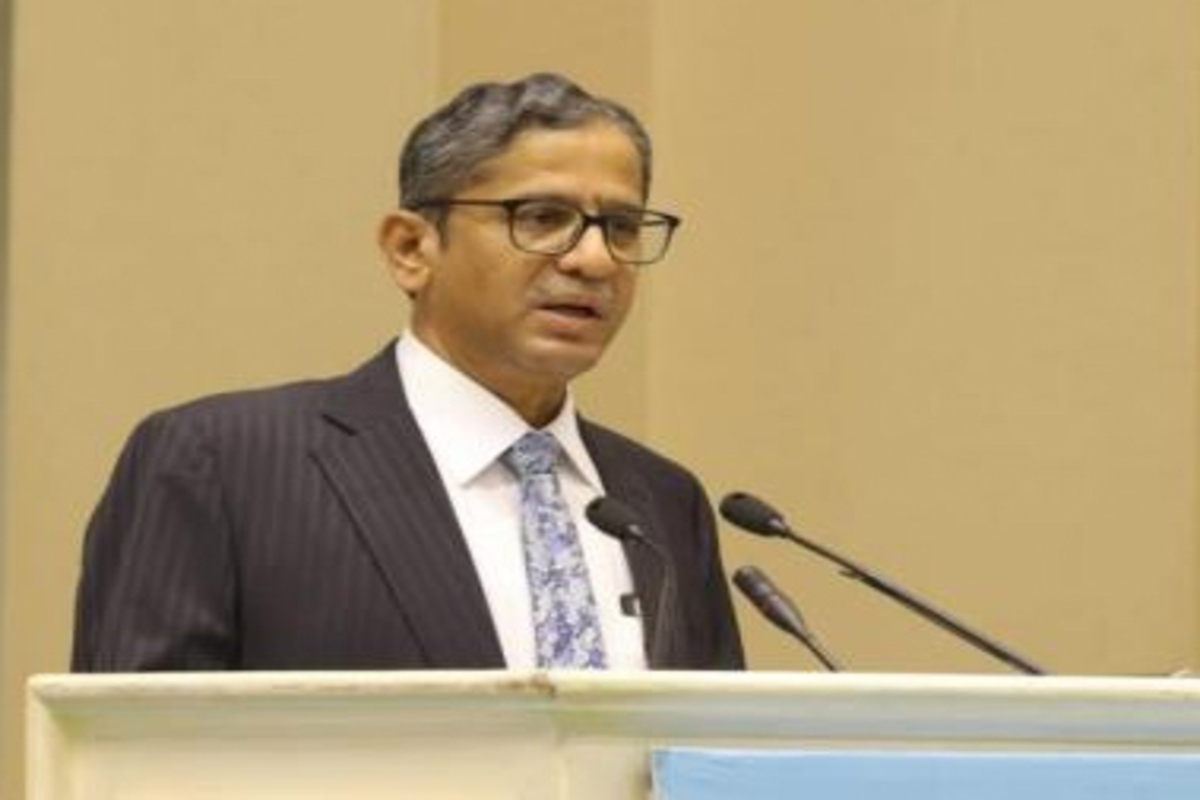Chief Justice of India N.V. Ramana on Friday said as a judge, he always wanted his name to be etched on the hearts of the people through his conduct and behaviour, and also as one who recognised, preliminarily, the moral power of a judge.
In his address at his farewell event organised by the Supreme Court Bar Association (SCBA), he said: “I may be remembered as a judge who heard the senior and the junior alike. As a judge, I always wanted my name to be etched on the hearts of the people through my conduct and behaviour, rather than case law and journals”.
Advertisement
“I want to remain in those vibrant hearts which will give me warmth and keep me going forever. I have seen the flow of emotions in courtroom No. 1 this morning. This is a reflection of the strong sense of your belongingness with the institution. I was touched by the display of emotions in particular by Mr. (Kapil) Sibal and Mr. (Dushyant) Dave.”
The Chief Justice said he is demitting his office with utmost contentment and when people ultimately judge him as a judge, he would like to say that he may be judged as a very ordinary judge, but one who greatly relished and enjoyed the job. “I may be judged as one who meticulously followed the rules of the game and did not trespass into provinces forbidden. More importantly, as one who recognized preliminarily the moral power of a judge,” he said.
On his journey across the country to speak to the public through various events, he said the popular perception is that the Indian judiciary was alien and quite distant to the general public and there are still millions with suppressed judicial needs who are apprehensive to approach the judiciary in times of need.
Chief Justice Ramana said: “My experience so far has convinced me that in spite of fulfilling its constitutional mandate, the judiciary does not find adequate reflections in the media, thereby depriving the people of knowledge about the courts and the Constitution. I felt it was my Constitutional duty to dispel these notions and bring the Court closer to the people, by way of generating awareness and building confidence among people about the judiciary.”
He said he is happy to note that people are able to engage with him on his subject in their language and he had actively tried to promote a sense of belongingness of the people with the system. “My constant endeavour was to make the people aware, not just about their rights and obligations, but also about the constitutional scheme and democratic values and institutions. My sincere effort was to initiate a dialogue,” he said.
The CJI added that the focal point of any justice delivery system is “the litigant- the justice seeker, but our system, practices, rules, being colonial in origin, may not be best suited to the needs of the Indian population”.
“The need of the hour is the Indianisation of our legal system. When I say Indianisation, I mean the need to adapt to the practical realities of our society and localise our justice delivery system,” he said.











